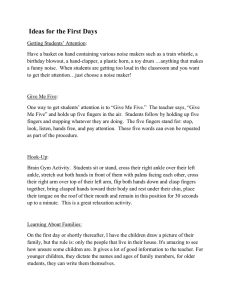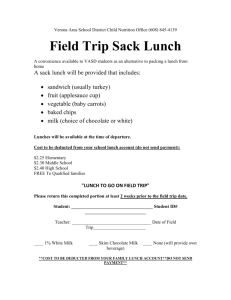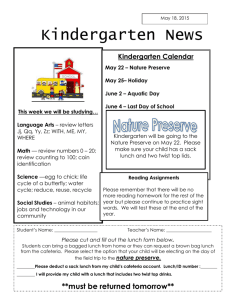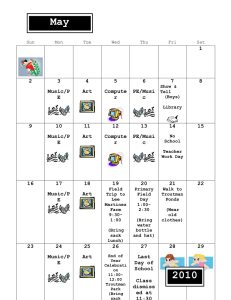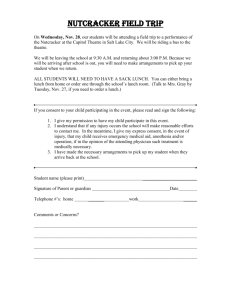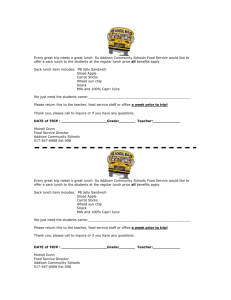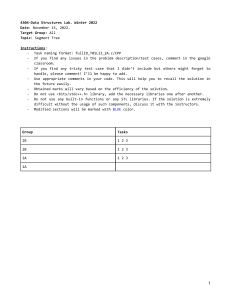Starting off on the right foot can make all the plan.
advertisement
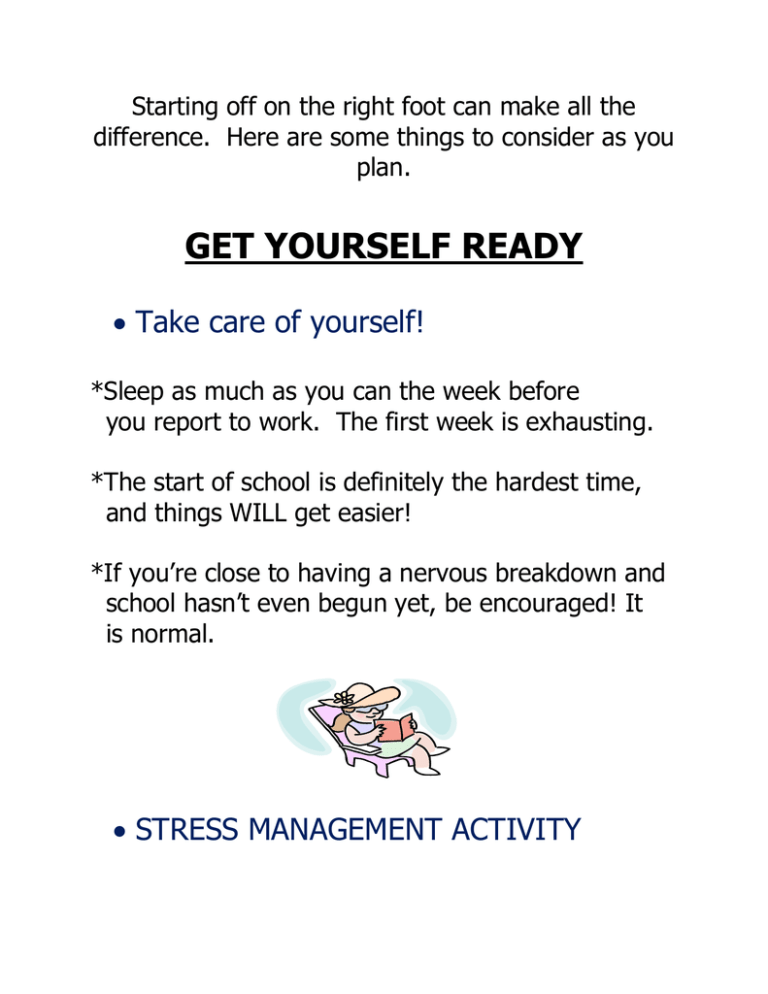
Starting off on the right foot can make all the difference. Here are some things to consider as you plan. GET YOURSELF READY Take care of yourself! *Sleep as much as you can the week before you report to work. The first week is exhausting. *The start of school is definitely the hardest time, and things WILL get easier! *If you’re close to having a nervous breakdown and school hasn’t even begun yet, be encouraged! It is normal. STRESS MANAGEMENT ACTIVITY BUILD RELATIONSHIPS Be nice to the school secretary and the custodian. They know the school, the students, and the neighborhood. They can help you. *Ask about attendance and lunch count procedures. Find out how to get an e-mail. *Choose a teacher at your grade level or in a nearby classroom and ask if he or she would be available to answer questions or give friendly advice during the first few weeks of school. Let that teacher know that you're open to suggestions and eager to learn. *You should be assigned a mentor. If not, seek out someone—ask questions! ESTABLISH THE EXPECTATIONS/GUIDELINES Start off by establishing expectations (no more than five) right at the beginning. Let students help you develop and establish the expectations. They will be more likely to follow them. They should be posted in the classroom and sent home so parents will know. Be sure to include consequences and privileges. *Our Guidelines (flip book) *Class Promise *Create, introduce, model, and reinforce procedures and routines. *Morning Routine *Share parent letters explaining classroom expectations and consequences. Class Promise Today is a new day! I will act in a safe and healthy way. I will respect the rights of others. I will treat all property with respect. I will take responsibility for my learning. Today I will be the best me I can be! Morning Routine Have a clear procedure of your morning routine written on a poster. Hang it in the room so that when your students enter the room they know exactly what is expected of them. 1. 2. 3. 4. 5. Hang up coat and backpack Put homework in bin Make lunch choice Sharpen pencil Work on self-start quietly at desk. GET ORGANIZED This is essential!!! The more organizational thinking, planning, and work you can do before school starts, the better off you will be. *Long Range Planner *Dealing with Paperwork! (Set up a sensible organizational system from day one) *Class List *Organizational Ideas (baskets for supplies, sharpening pencils, ways students go home) BUILD TEAM SPIRIT/CLASSROOM COMMUNITY You might give your class a name, such as “The Bumblebees from Room Three.” *Happy Sack Take an ordinary brown paper lunch sack and decorate it with smiley faces. Each day when someone sees an act of kindness or notices another classmate being nice, have them write it down on a slip of paper. Put the note into the "Happy Sack". On Friday, go through the Happy Sack and read all of the wonderful things going on in the classroom. A Circle of Friends We've joined together as classmates as the new year begins... A year full of learning while we become friends. We'll share and be kind as we work and play. And our friendship will grow with each passing day. DEVELOP RESOURCES Know where to get help when you need it. DO YOUR BEST Determine what factors are likely to keep you from doing your job during the school year. Then figure out a way to work around them. For example: How will you work with too many students in your class? How will you deal with the wide range of student abilities? How will you deal with disruptive students? APPRECIATE THE SMALL THINGS Give yourself a lift by focusing on the positive…the student who tells you that he or she learned something that first week of school. BE REALISTIC You will spend many hours beyond the school day preparing lessons, preparing paperwork, and critiquing student work. Identify times when you will not think about your professional life, and instead concentrate on your physical, emotional, and social well-being. *Don’t let classroom problems affect your emotional wellbeing and your ability to enjoy life away from school. *Make a real effort to be happy. Your students need a joyful teacher each day! BE PREPARED FOR SPECIAL STUDENTS You may have students with special learning problems or physical handicaps. Don’t expect those problems to work themselves out. Plan from the beginning how you will deal with them in the best interests of the students, yourself, and the rest of the class. THINK ABOUT HEALTH Make an early determination about how you will handle students with special health problems. Do you know what to do if a student is subject to epileptic seizures? What about administering medicine to students? Talk with the school nurse. FIND A SHOULDER Look for a colleague to turn to for special advice or simply to unburden yourself about a specific classroom challenge. GET PARENTS INVOLVED Is there any special way to approach parentteacher conferences? Are there any particular messages you want to send home to parents? How will you deal with parents who want to help their students learn? *Volunteer Sign-Up Sheet *The parents of students in your classroom can help make your job easier, by volunteering in your class or supporting behavior programs at home. *Homework Assignment Sheet *A Reading Guide for Parents *Reading Homework Sheet *Pre-conference Form *Meeting with Parents Face to Face *Dealing with Angry Parents COMMUNICATE WITH PARENTS Send a note home early in the year to introduce yourself. Let parents know that you are available, and list the process and times for getting in touch with you. *Dear Parents (Introduction Letter) *Dear Parents (Behavior Mangement Plan) *Teacher-Parent Communication *Share Examples of Class Newsletters “Communicate clearly with parents from the start and you’ll have a band of allies to make your entire year flow more smoothly.” PLAN YOUR LESSONS Develop your lessons from the curriculum objectives for that grade level. *It’s better to over plan for the first week MAKE A GOOD FIRST IMPRESSION Get organized and show your students and their parents that you are prepared and know what you are doing. Project confidence! START OFF SLOWLY During the first grading period, while the material is not too difficult, go over the content slowly enough that most students can find some success. SET A POSITIVE TONE Send a positive note home with every student at some time during the first grading period. Catch the students being good. KEEP THE PRINCIPAL INFORMED If you plan to do anything new or unusual this year, make certain you mention it to your principal in advance. BRIEF YOUR STUDENTS Let your students know exactly what you expect of them. Most students will rise to the teacher’s expectations. REMEMBER THREE QUALITIES OF GOOD TEACHING Be flexible, be patient, and keep your sense of humor.

